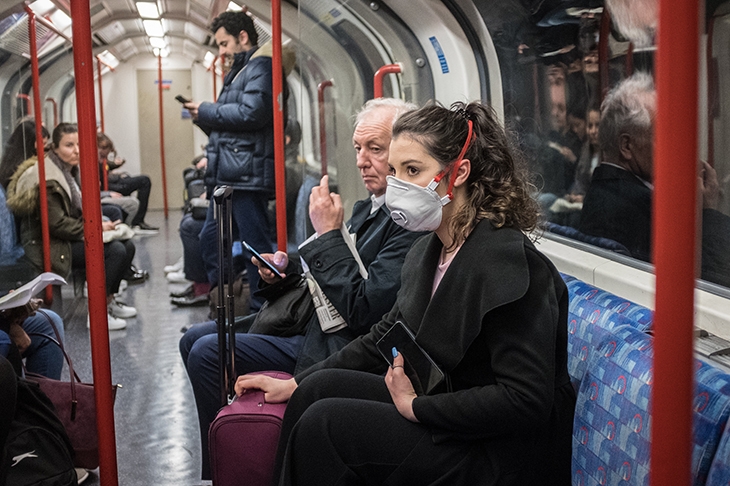Before the Covid-19 scare I never thought that one particular Spanish proverb would come in useful. It goes: ‘Los ojos con los codo.’ This hardly seems to make sense, ‘Eyes with the elbows’, but the great 19th-century traveller Richard Ford explains in his Gatherings from Spain that the sun’s glare on the dusty land may inflame the eyes, which must never be rubbed with the hand, only with the elbow, lest ophthalmia and blindness set in. He also recommends blue gauze spectacles, which I must out.
Now, with the coming of the coronavirus, the public-spirited sneezer will use a pad of paper tissues in her hand, or sneeze into the crook of her elbow, rather than into her hand, which might then infect Underground carriage poles or escalator handrails.
It is impossible to use the point of the elbow on the eyes; you can’t reach. I mentioned the crook of the elbow, but the Oxford English Dictionary seems to limit the reference of elbow to the pointed, angular part. The elbow is literally the bend (bow) of the ell (which gives us the obsolete measurement), though the Old English word had an n in it: eln. That word is related to Latin ulna (which we use technically for the bone beside the radius). What the inside angle of the elbow is called, who can say? My husband was useless when I asked him, going on about the antecubital fossa. Some call it the elbow-pit, but the OED is ignorant of this term.
Someone who hasn’t a clue is often said not to know his arse from his elbow. Richard Ford doesn’t give the acknowledged Spanish equivalent, but it is confundir el culo con las témporas — can’t tell his arse from his ember days.







Comments
Join the debate for just $5 for 3 months
Be part of the conversation with other Spectator readers by getting your first three months for $5.
UNLOCK ACCESS Just $5 for 3 monthsAlready a subscriber? Log in